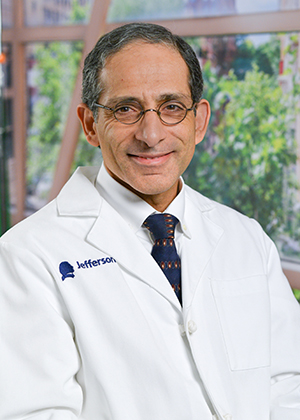“I think medicine is all about altruism,” says Behzad Pavri, MD, a Jefferson cardiac electrophysiologist. “That’s my take on it: You have to give to others.”
And he does, evaluating electrical activity in human hearts, diagnosing abnormal heartbeats, and surgically implanting electronic devices like pacemakers and defibrillators that help patients live better and longer. Many times, the devices he implants are the difference between life and death.
Pavri has a quiet confidence in the good things he is able to make happen by taking matters into his own hands. After completing medical training at the University of Bombay, where he became fascinated by electrocardiography, he decided to come to the U.S. for residency.
“I was so naïve,” he recalls. “I thought I would immediately find at least one position, but I could not. So I spent a year reapplying while working as a cashier at 7-Eleven and as a research assistant at the University of South Florida because I needed the money.”
He was convinced his best chance would be to hand deliver applications to institutions likely to admit international medical graduates. Mostly, he was greeted by snarky receptionists, unimpressed by his personal-touch gesture. At Harlem Hospital, when he handed the envelope to the secretary, he was barely noticed and dismissed in the usual way. As he turned and started for the door, she called out, “Hold on.” Pavri turned back to see her sifting through the pages of his application, looking closely at one.
“Last year we had an excellent set of residents who matched from the University of Bombay,” she commented, her tone softening. “Would you mind waiting here?”
A few minutes later, the program director came in and shook his hand warmly. “So you’re from the University of Bombay?” he said, and suddenly put the young applicant on the spot with a question about the side effects of digoxin toxicity. Pavri answered what he could, admitted what he didn’t know, and received an invitation to come back for a formal interview the following Wednesday.
In the years that followed, he did an internal medicine residency at Harlem, a cardiology fellowship at Columbia Presbyterian, electrophysiology training at Harvard, and then took a position at Penn, where much of his practice focused on doing good with cardiac implantable electronic devices (CIEDs). He came to Jefferson in 2001.
As soon as he started practice as a cardiac electrophysiologist, Pavri was struck by how thoughtlessly these costly, battery-powered devices were being thrown away after being replaced by an updated model or otherwise removed from patients or corpses.

